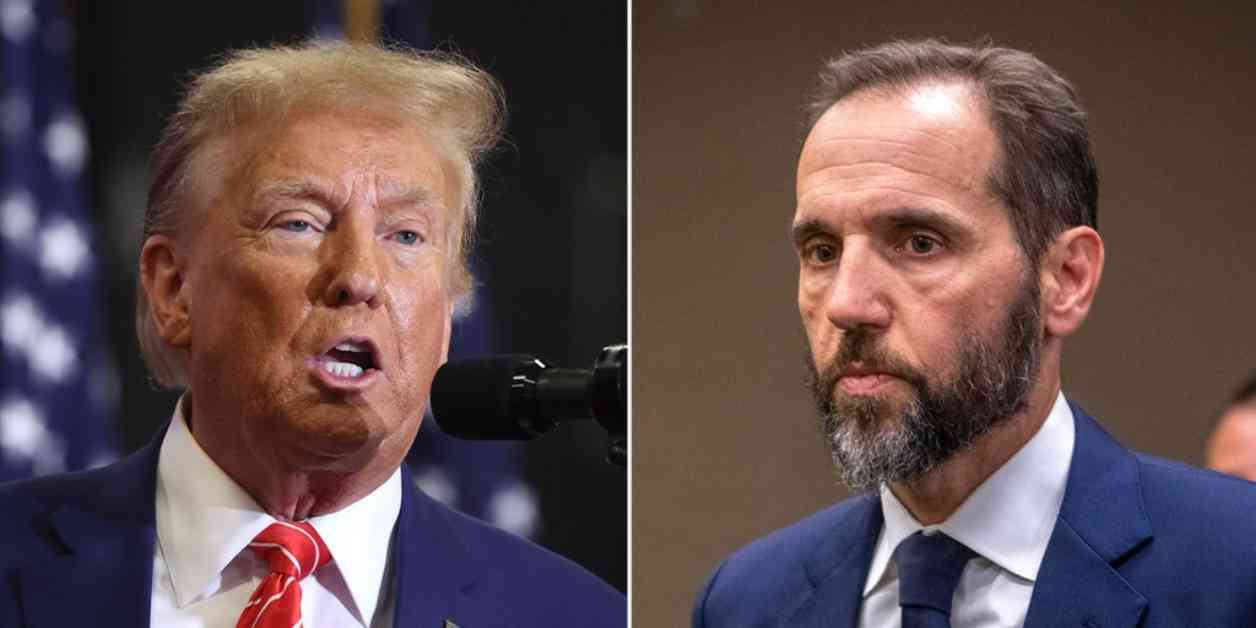Former President Trump’s first day in court for a hearing to determine the lawfulness of Special Counsel Jack Smith’s appointment in the classified document investigation concluded Friday without a decision being made.
Friday’s hearing inside a courthouse in Fort Pierce, Florida, ended around 2:30 p.m. after the court heard arguments from the defense and prosecution as well as constitutional lawyers supporting either side’s analysis.
Prior to concluding for the day, U.S. District Judge Aileen Cannon heard an argument from a lawyer backing up the Trump defense team’s claims.
Josh Blackman of Landmark Legal Foundation argued that Smith did not wield the proper authority to exercise the powers he had been given.
The arguments were centered on whether the law authorizes the Department of Justice (DOJ) and Attorney General Merrick Garland to appoint a special counsel, such as Smith. The discussions during the hearing were policy-heavy, as each side sought to prove what is truly meant by the law and what authority is ultimately bestowed on Garland and Smith.
Matthew Seligman, a constitutional lawyer and scholar, argued on behalf of the DOJ during the hearing, pointing to one specific word in a statute that backs Garland’s appointment of Smith in the classified documents case.
The word “appoint” is used in section 533, he pointed out to Cannon. This is significant, he explained, as ordinary employees are not installed via appointment. The word is used in the context of government officials, who are put in place by appointment.
According to Seligman, who is part of a group of constitutional lawyers called Defenders of Democracy, the statute is abundantly clear in granting the attorney general the authority to appoint such officials, or special counsels, to prosecute crimes in the U.S.
Trump’s lawyers argued that because Smith was unlawfully appointed and not confirmed by Congress, the case should be thrown out.
Defense attorney Emil Bove used the phrase “shadow government” while arguing against the validity of Smith’s appointment.
Bove mentioned the term while describing a situation in which inferior officers, unconfirmed by the Senate, are put in power. “These are the risks we are running,” he said.
DOJ prosecutor James Pearce argued for Smith’s team and opened by telling Cannon that the Trump team’s legal analysis is, “foreclosed by precedent” and that it could lead to “pernicious consequences.”
Smith’s team maintains that Garland has the statutory authority to appoint a special counsel, pointing to US Code 28 Section 516, which gives the AG the authority to prosecute criminal matters and puts the AG in charge of any litigation on behalf of the United States.
Pearce also told Cannon that while Smith’s team is operating independently on a day-to-day basis, DOJ regulations allow the AG to ask for an explanation of any step taken by the special counsel.
Cannon was reportedly very active during the hearing, asking questions of both sides, including asking Bove about the text of Section 533, “What is a special attorney or assistant? What is the difference?”
At the end of the hearing, after hours of arguments on dense and complicated legal issues, Cannon seemed to home in on one issue: whether Garland had any direct role in Trump’s indictment.
Cannon asked Pearce if there had been any oversight by Garland on Smith’s team in relation to the issue that Garland has repeatedly assured Congress that Smith is acting independently and that there has been no coordination with the Biden White House.
Pearce assured the judge that Smith’s team had complied with all the DOJ regulations governing the special counsel.
Cannon is expected to issue a written order in the coming days.


















